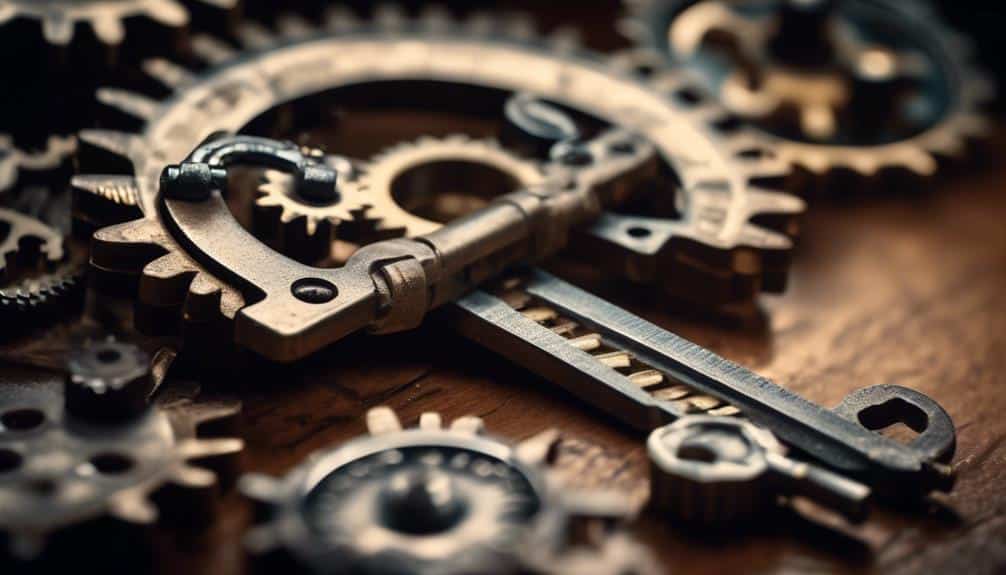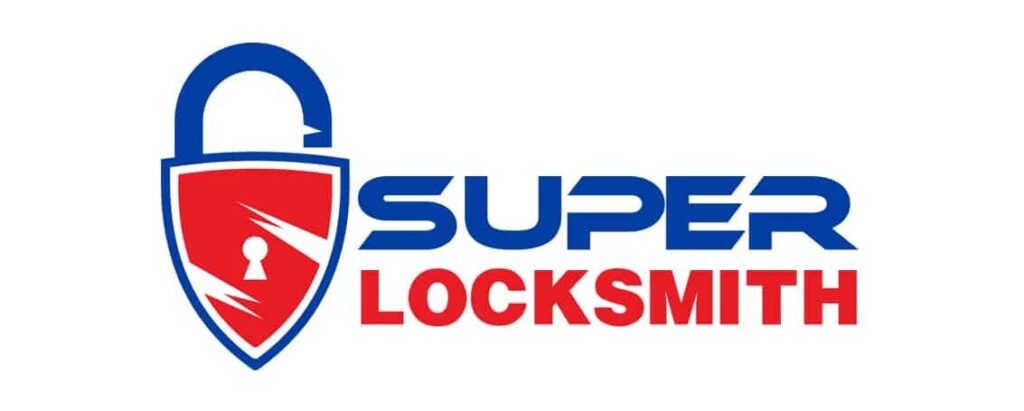Have you ever stopped to think about the intricate workings of a master key system? The way it effortlessly grants access to different areas with just a turn of a key is truly remarkable.
However, like any complex system, it requires proper maintenance to ensure its continued functionality. Without regular upkeep, master key systems can become susceptible to issues that can compromise security and cause inconvenience.
In this discussion, we will explore the reasons why proper maintenance is crucial for master key systems, and why neglecting it can lead to unforeseen consequences.
Regular Lubrication for Smooth Operation
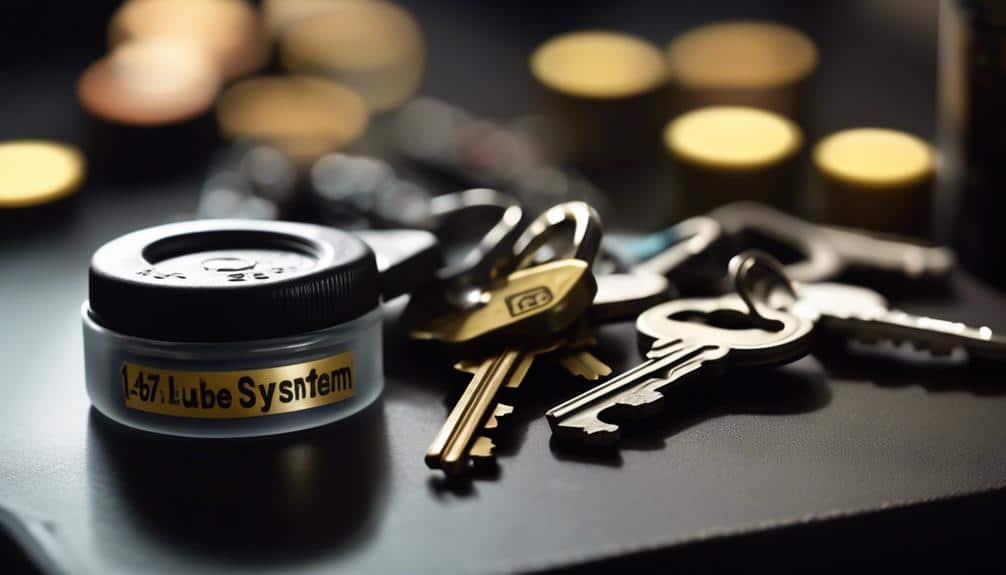
To ensure smooth operation, regular lubrication is essential for maintaining master key systems. Regular lubrication helps prevent lock jamming, which can cause inconvenience and delays in accessing different areas. Master key systems consist of multiple locks that are interconnected and operated by a single master key. These systems are commonly used in commercial buildings, schools, and hospitals, where access control is crucial.
Lock jamming can occur due to the accumulation of dirt, dust, and debris within the lock mechanism. Over time, these particles can interfere with the proper functioning of the lock's internal components, leading to jamming or difficulty in turning the key. Regular lubrication helps to reduce friction and wear between these components, ensuring smooth operation.
When lubricating master key systems, it's important to use a high-quality lubricant specifically designed for locks. Applying the lubricant to keyholes, lock cylinders, and other moving parts helps to keep them clean, well-lubricated, and free from debris. This preventive maintenance measure should be performed at regular intervals to maintain the optimal performance of the master key system.
Inspection of Keyways for Debris
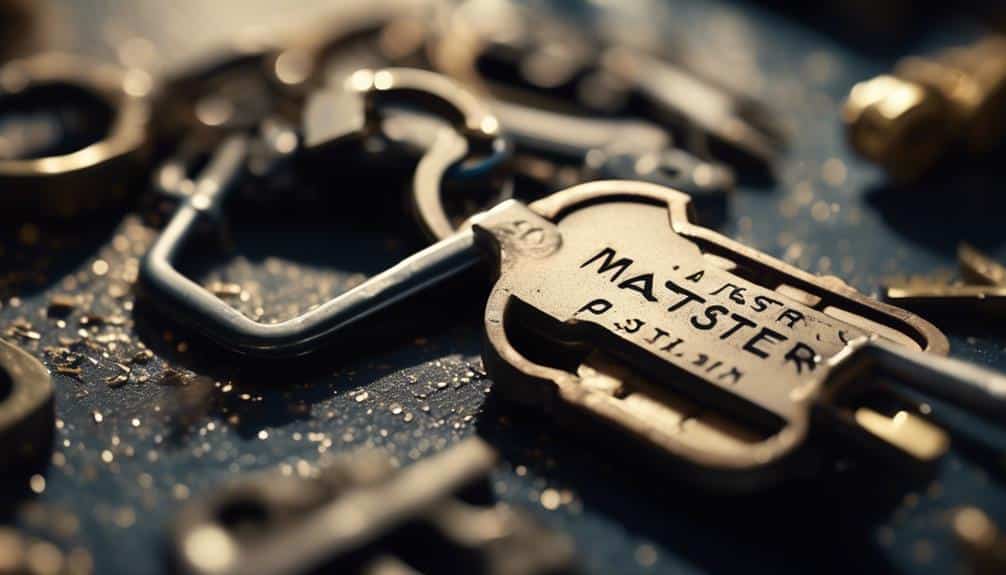
When it comes to proper maintenance for master key systems, one crucial aspect is the inspection of keyways for debris. Debris accumulation prevention is essential to ensure the smooth operation of the key system.
We emphasize the importance of regular keyway inspection to maintain keyway cleanliness and prevent any potential issues that could arise from debris buildup.
Debris Accumulation Prevention
Inspect keyways regularly for debris to ensure proper functioning of master key systems. Debris accumulation can impede the smooth movement of keys, leading to various issues such as jamming, difficulty in turning, and potential damage to the lock mechanism. By preventing debris buildup, you can minimize the chances of rust formation and key breakage, ensuring the longevity and reliability of the system.
Here are three reasons why inspecting keyways for debris is crucial:
- Enhanced Security: Debris accumulation can compromise the security of the master key system by allowing unauthorized access or making it easier for intruders to pick the lock.
- Reduced Maintenance Costs: Regular inspection and cleaning of keyways help prevent costly repairs and replacements caused by debris-induced malfunctions.
- Improved User Experience: By maintaining debris-free keyways, users can enjoy smooth and effortless operation, preventing frustration and inconvenience.
Regular inspection and timely removal of debris are essential maintenance practices for preserving the effectiveness and longevity of master key systems.
Keyway Cleanliness Importance
Regular inspection and cleaning of keyways is essential to maintain the proper functioning and longevity of master key systems. Preventing debris accumulation is crucial in this process. Keyways are prone to collecting dirt, dust, and other foreign particles over time, which can interfere with the smooth operation of the system.
Keyway maintenance involves conducting routine checks to ensure that there's no build-up of debris that may hinder the movement of keys. Cleaning techniques such as using compressed air or specialized brushes can effectively remove any debris from the keyway. It's important to pay attention to the cleanliness of keyways to avoid jamming or damage to the system.
Regular Keyway Inspection
To ensure optimal performance and longevity of master key systems, it's crucial to regularly inspect keyways for any accumulation of debris. Neglecting keyway maintenance can lead to reduced key system efficiency and potential lock malfunctions. Here are three reasons why regular keyway inspection is essential:
- Prevention of lockouts: Debris, such as dirt and dust, can hinder the smooth operation of keyways, causing keys to get stuck or break. By inspecting keyways regularly, we can remove any accumulated debris and prevent lockouts that could disrupt daily operations.
- Enhanced security: Debris in keyways can compromise the integrity of the key system, making it easier for unauthorized individuals to gain access. Regular inspections help identify and address any potential security vulnerabilities, ensuring the system remains robust and secure.
- Prolonged key and lock lifespan: Debris can cause excessive wear and tear on keys and locks, leading to premature damage and the need for costly replacements. By regularly inspecting and cleaning keyways, we can extend the lifespan of keys and locks, saving time and money in the long run.
Checking and Tightening Loose or Worn Out Screws
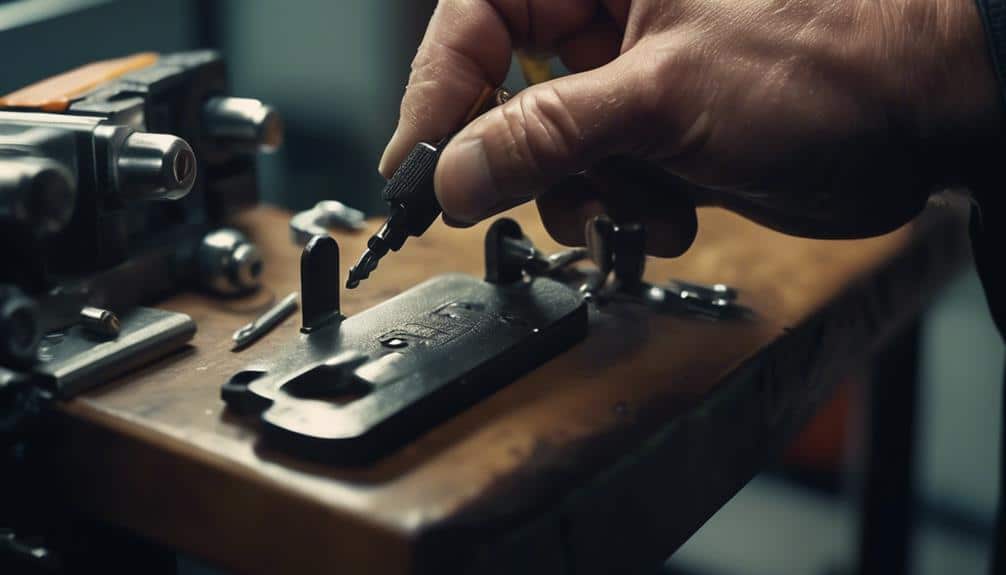
We need to ensure that screws in a master key system are properly maintained to prevent any potential issues.
Regular checks and tightening of loose or worn out screws is essential in maintaining the integrity and functionality of the system.
Neglecting this maintenance task can lead to key system failures, compromising the security and efficiency of the entire system.
Screw Maintenance Techniques
Inspecting and tightening loose or worn out screws is an essential maintenance technique for ensuring the proper functioning of master key systems. Neglecting this task can lead to security vulnerabilities and compromised access control.
To effectively maintain screw integrity, consider the following techniques:
- Regularly inspect screws for signs of wear, such as looseness, stripping, or rust.
- Use appropriate screw tightening techniques, such as using the correct screwdriver size and applying sufficient torque without overtightening.
- Employ screw lubrication methods, such as using lubricants specifically designed for screws, to reduce friction and prevent corrosion.
Importance of Regular Checks
Regularly checking and tightening loose or worn out screws is a critical maintenance practice to ensure the optimal functionality and security of master key systems. By conducting regular maintenance checks, we can identify and address any loose or worn out screws before they become a serious issue.
Loose screws can compromise the overall security of the system, making it susceptible to unauthorized access. Additionally, worn out screws can lead to malfunctioning locks, causing inconvenience and potential security risks.
By tightening loose screws and replacing worn out ones, we can maintain the integrity of the master key system and prevent any potential vulnerabilities. Regular maintenance also extends the lifespan of the system, reducing the need for costly repairs and replacements.
Preventing Key System Failures
To prevent key system failures, it's crucial to regularly check and tighten any loose or worn out screws. Loose screws can cause misalignment and affect the overall functionality of the key system.
Here are three reasons why checking and tightening screws is essential for key system maintenance:
- Secure operation: Tightening loose screws ensures that all components of the key system are properly aligned and functioning as intended. This prevents any unexpected failures or malfunctions during key usage.
- Increased durability: Worn out screws can compromise the structural integrity of the key system. By regularly checking and replacing these screws, you can prolong the lifespan of your system and avoid costly repairs or replacements.
- Enhanced efficiency: Loose or worn out screws can cause friction, making it difficult to operate the key system smoothly. Tightening screws improves key system efficiency, allowing for seamless key insertion and turning.
Regularly inspecting and tightening screws is a simple yet effective maintenance practice that significantly contributes to the overall performance and longevity of your key system.
Testing and Replacing Malfunctioning Locks
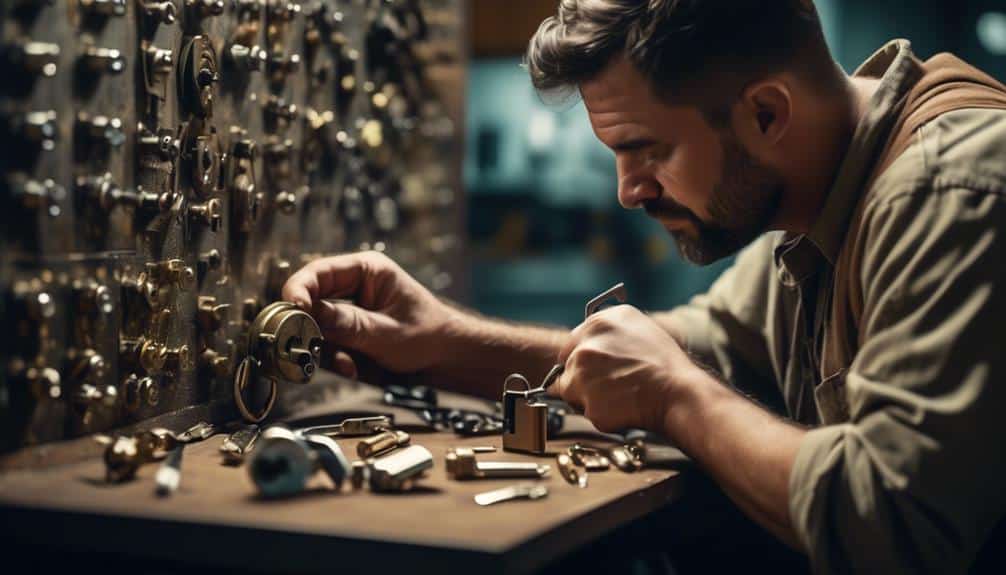
We recommend periodically checking and replacing malfunctioning locks to ensure the proper functionality of the master key system. Regular testing procedures are crucial to identify any issues with the locks and take appropriate action. When conducting tests, it's important to follow lock replacement guidelines to ensure a smooth transition and minimize disruption to the system.
One effective testing procedure is to assess the lock's performance by inserting and removing keys to ensure smooth operation. If there are any signs of resistance or difficulty in turning the key, it may indicate a problem with the lock. Additionally, inspecting the lock for any physical damage or signs of wear and tear is essential.
If a lock is found to be malfunctioning or damaged, it's imperative to replace it promptly. Lock replacement guidelines should be followed to maintain the integrity of the master key system. This involves removing the faulty lock and installing a new one that matches the existing key system.
Updating and Organizing Key Schedules
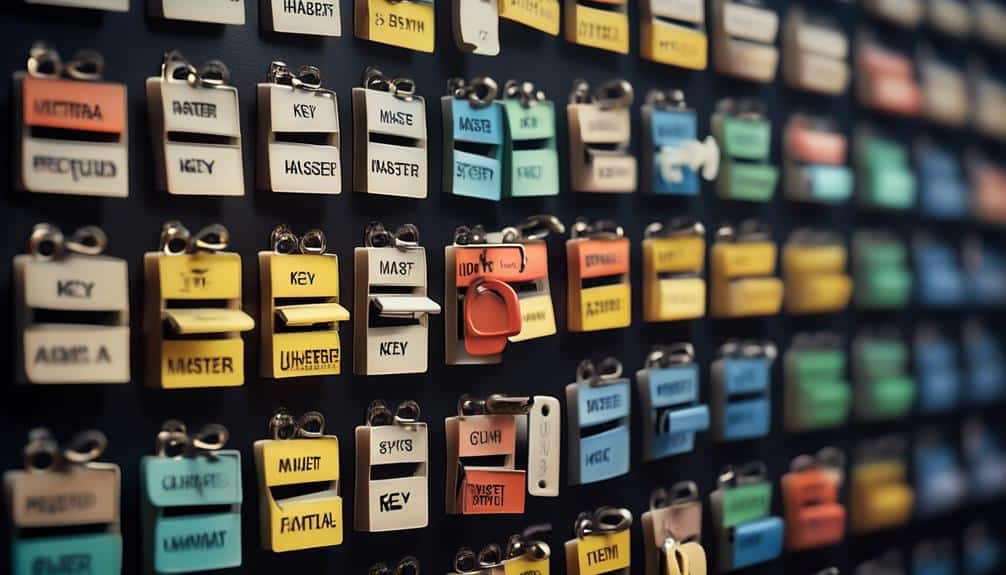
After ensuring the proper functionality of the master key system by testing and replacing malfunctioning locks, the next step is to update and organize key schedules.
Updating key records is essential to maintain an accurate and up-to-date inventory of keys in the system. This involves documenting any changes, such as adding or removing keys, and keeping track of who's access to specific areas.
Key system audits play a crucial role in maintaining the security and efficiency of the master key system. Regularly conducting audits allows for the identification of any inconsistencies or discrepancies in the key schedules. It also provides an opportunity to review and update access levels, ensuring that only authorized personnel have the necessary keys.
To evoke emotion in the audience, consider the following:
- Peace of mind: By updating and organizing key schedules, you can have peace of mind knowing that your master key system is accurate and secure.
- Efficiency: Properly updated key records make it easier to manage and track access to different areas, increasing overall efficiency.
- Enhanced security: Regular key system audits help identify any vulnerabilities or unauthorized access, enhancing the security of your premises.
Rekeying Locks for Security Purposes

When it comes to maintaining the security of our master key systems, rekeying locks is an essential practice.
By rekeying locks, we can enhance lock security by rendering old keys useless and creating new keys that provide access to authorized individuals only.
This cost-effective security measure allows us to prevent unauthorized access without having to replace the entire lock system, saving us time and money in the long run.
Enhanced Lock Security
To enhance lock security, consider rekeying the locks for added protection. Rekeying is a process that involves changing the internal pins of a lock cylinder to match a new set of keys. This is an important security measure that helps prevent unauthorized access to your property.
Here are three reasons why rekeying locks is crucial for enhanced lock security:
- Protection against lost or stolen keys: Rekeying the locks ensures that any lost or stolen keys will no longer work, offering peace of mind and eliminating the risk of unauthorized entry.
- Limiting access to certain areas: Rekeying allows you to restrict access to specific areas within your property, giving you control over who can enter certain spaces.
- Maintaining key control: Regular rekeying helps maintain key control by ensuring that only authorized individuals have access to the new set of keys.
Cost-Effective Security Measures
Enhancing lock security through rekeying isn't only a crucial security measure but also a cost-effective solution to protect your property.
Rekeying involves changing the internal pins of a lock cylinder to render old keys useless and create new keys that fit the updated configuration. This process eliminates the need to replace the entire lock, resulting in significant cost savings.
Rekeying is especially beneficial in situations where security system upgrades are necessary due to lost or stolen keys, employee turnover, or changes in access requirements.
By rekeying the locks instead of replacing them, you can ensure that unauthorized individuals can't gain access to your property while also avoiding the expense of purchasing new locks.
This cost-saving measure allows you to maintain a high level of security without breaking the bank.
Monitoring and Addressing Wear and Tear
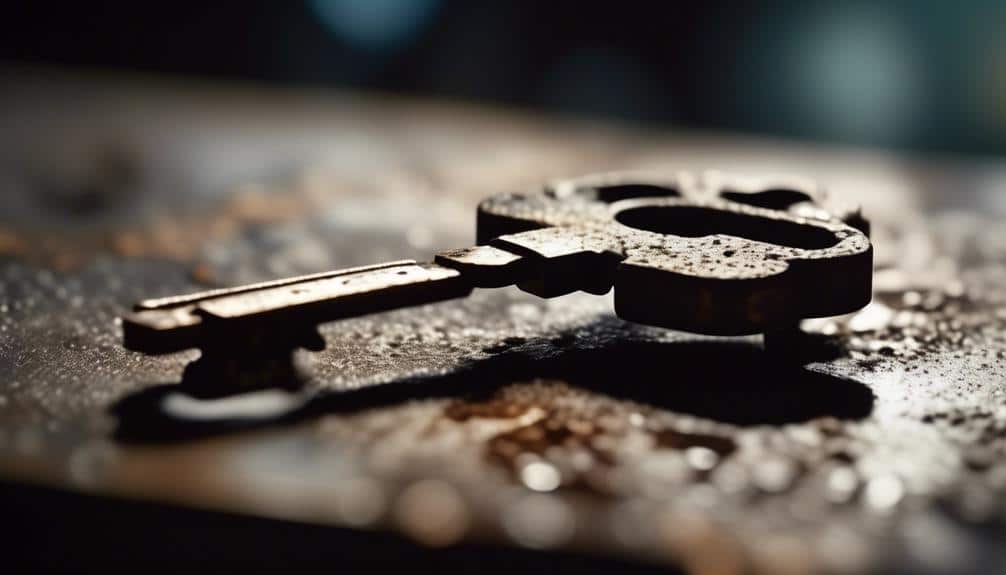
As wear and tear can have a significant impact on the performance of master key systems, it's crucial to regularly monitor and address any signs of deterioration. Neglecting wear and tear prevention can lead to compromised security and increased vulnerability. Here are three reasons why monitoring and addressing wear and tear is essential:
- Reduced reliability: Over time, the components of a master key system can experience wear and tear, resulting in decreased reliability. Locks may become difficult to operate, keys may start to wear down, and mechanisms may become misaligned. Regular monitoring allows for early detection of these issues, enabling prompt maintenance intervention to maintain the system's reliability.
- Increased security risks: Wear and tear can weaken the security of a master key system. Malfunctioning locks and worn-out keys can be easily exploited, compromising the safety of the premises and its occupants. Regular monitoring and timely maintenance ensure that security risks are promptly addressed, preventing potential breaches.
- Cost-effective maintenance: By monitoring wear and tear and addressing issues promptly, potential problems can be resolved before they escalate. Early maintenance intervention prevents small issues from turning into costly repairs or complete system failures. It helps extend the lifespan of the master key system, reducing the need for frequent replacements and saving significant costs in the long run.
Regularly monitoring and addressing wear and tear in master key systems is crucial for maintaining their reliability, security, and cost-effectiveness. It ensures that the system remains functional and secure, providing peace of mind to property owners and occupants.
Cleaning and Maintaining Electronic Components
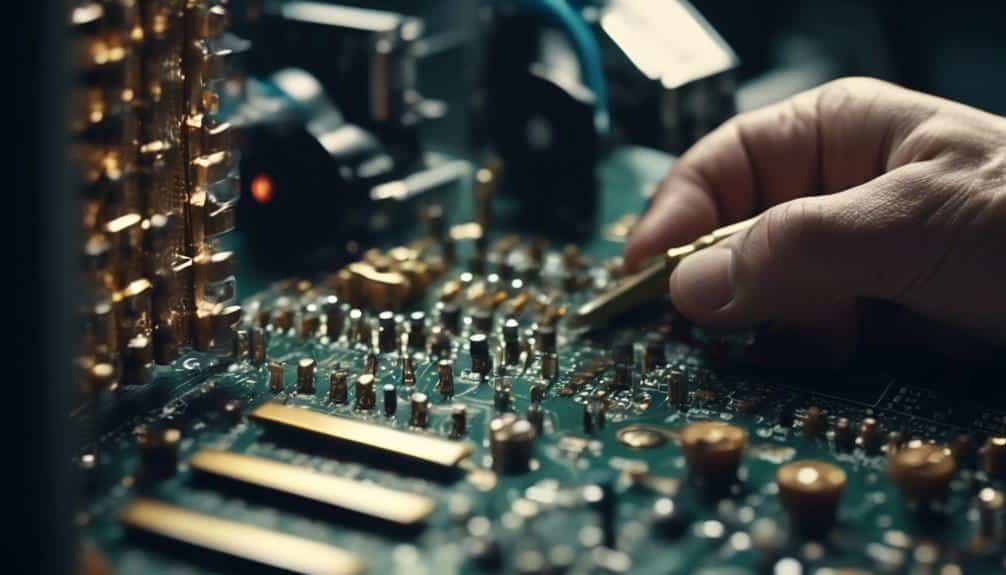
Regular cleaning and maintenance of electronic components is crucial for ensuring the optimal performance and longevity of a master key system. Electronic components, such as keypads, readers, and control panels, can accumulate dirt, dust, and debris over time, which can affect their functionality and reliability. To prevent this, it's important to incorporate electronic component maintenance into your regular maintenance routine.
When cleaning electronic components, it's important to use the right tools and techniques to avoid causing damage. Start by disconnecting the power supply and using a soft, lint-free cloth or brush to gently remove any visible dirt or dust. Avoid using abrasive materials or harsh chemicals that may scratch or corrode the components. For hard-to-reach areas, compressed air or a small vacuum can be used to remove debris without causing any damage.
In addition to regular cleaning, it's important to perform periodic troubleshooting techniques to identify and address any potential issues. This can involve checking for loose connections, inspecting for signs of wear or damage, and testing the functionality of the components.
Ensuring Proper Functioning of Key Control Systems
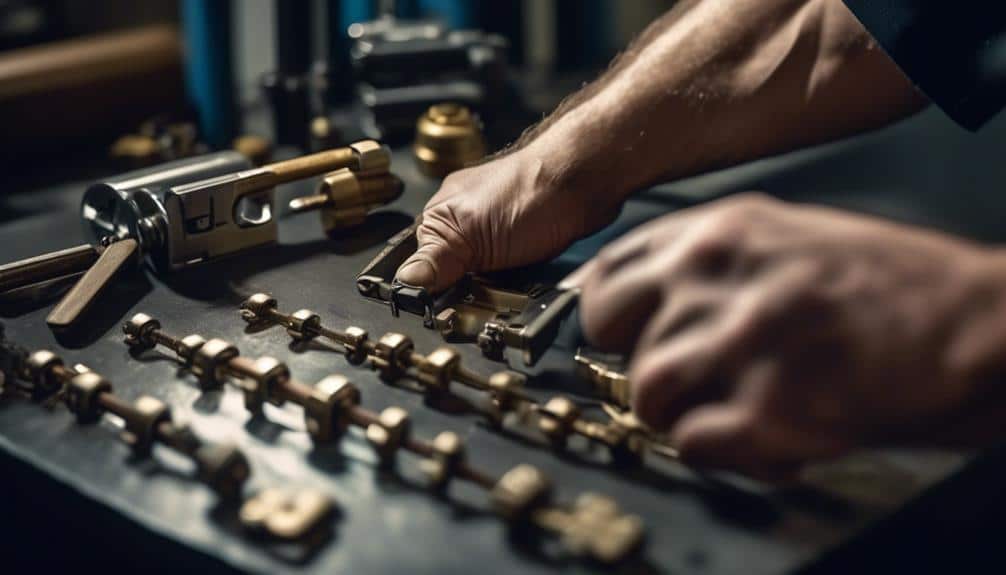
To ensure the optimal functioning of key control systems, it's essential to regularly inspect and test the components for any potential issues. Regular maintenance plays a crucial role in preventing malfunctions and ensuring the security of the system.
Here are three important factors to consider when it comes to maintaining key control systems:
- Periodic Lubrication: Lubricating the key control system at regular intervals helps to reduce friction between the moving parts, ensuring smooth operation. It prevents the keys from sticking or getting jammed, which can lead to inconvenience or even security breaches.
- Cleaning and Dusting: Regularly cleaning and dusting the key control system is necessary to remove any dirt, debris, or dust particles that may accumulate over time. These contaminants can interfere with the proper functioning of the system, causing key insertion problems or hindering the smooth rotation of the cylinders.
- Testing and Adjustment: Conducting periodic testing and adjustment of the key control system is crucial to identify any issues or abnormalities. This includes checking the alignment of the pins, cylinders, and keyways, as well as verifying the accuracy of key cutting. This ensures that the system operates smoothly and provides the necessary security.
Training Staff on Proper Use and Maintenance
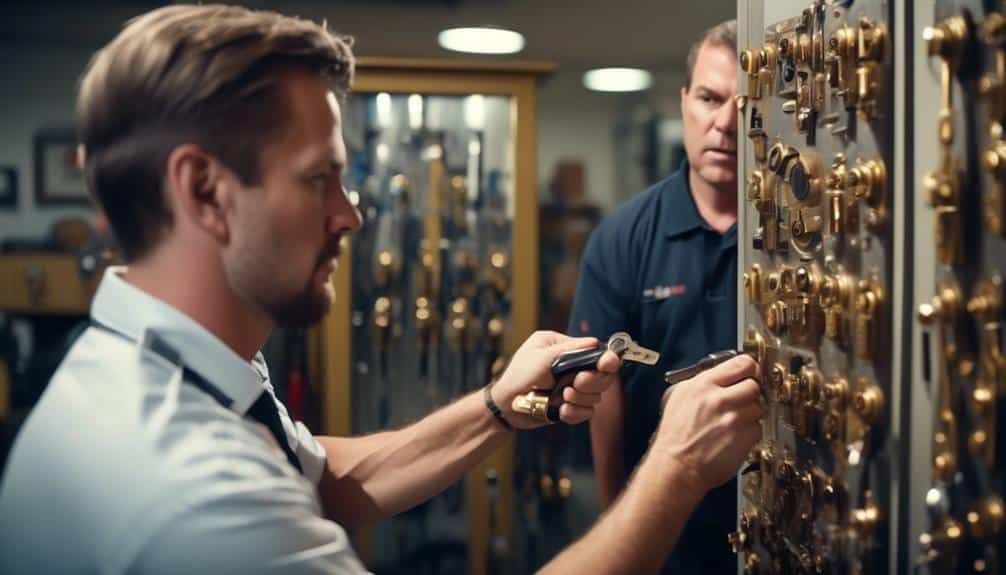
We will train our staff on the proper use and maintenance of key control systems to ensure optimal functioning and security. Staff training is essential to prevent any misuse or mishandling of the systems, which can lead to security vulnerabilities and compromised access control.
During the training, our staff will learn about the importance of following established protocols and procedures for key control. This includes properly handling and storing keys, using key management software, and reporting any issues or concerns promptly. They'll also be educated on the potential risks associated with improper use, such as unauthorized access, key duplication, or loss of keys.
In addition to the theoretical aspects, hands-on training will be provided to familiarize staff with the physical components of the key control systems. They'll learn how to operate key cabinets, key tags, and other equipment effectively. This training will empower our staff to handle key control systems confidently and efficiently, reducing the likelihood of errors or security breaches.
Regular refresher courses will be conducted to ensure staff members stay updated with the latest best practices and any system upgrades or changes. By investing in staff training, we can enhance overall system performance, maintain security, and minimize the risk of key-related incidents.
Frequently Asked Questions
How Often Should Master Key Systems Be Lubricated for Smooth Operation?
We always make sure to lubricate our master key systems regularly for smooth operation. It's like giving them a luxurious spa treatment!
The frequency of lubrication depends on the usage and environment, but generally, we recommend doing it every six months.
When it comes to lubricant type, we prefer using a high-quality graphite-based lubricant. This helps reduce friction and ensures that our master key systems continue to function flawlessly.
Proper lubrication is crucial for maintaining the longevity and performance of these systems.
What Type of Lubricant Should Be Used for Master Key Systems?
The best lubricant for master key systems is one that's specifically designed for locks and provides long-lasting protection against wear and tear. Regular lubrication is crucial for smooth operation and to prevent the key from getting stuck or breaking.
It reduces friction between the key and the lock mechanism, allowing for effortless turning. Proper maintenance, including lubrication, ensures the longevity and optimal performance of master key systems.
How Can Debris Be Effectively Removed From Keyways During Inspections?
Keyway cleaning techniques are crucial for preventing debris accumulation.
Regular inspections enable us to effectively remove debris from keyways. By using compressed air or a soft brush, we can dislodge and remove any dirt, dust, or other particles that may hinder smooth key operation.
Additionally, the use of lubricants can help prevent debris from sticking to the keyway surfaces.
Proper maintenance ensures the longevity and reliability of master key systems, reducing the risk of keyway blockages and malfunctions.
Are There Any Specific Tools or Equipment Required for Checking and Tightening Loose or Worn Out Screws in Master Key Systems?
When checking and tightening loose or worn out screws in master key systems, it's important to have the appropriate tools on hand.
Regular inspection and maintenance of these systems are crucial for ensuring their proper functioning.
What Are the Signs of a Malfunctioning Lock That May Need to Be Tested and Replaced in a Master Key System?
Signs of a malfunctioning lock in a master key system can include difficulty turning the key, a loose or wobbly handle, or a lock that sticks or jams.
Regular maintenance is important to address these issues before they become major problems. By testing and replacing malfunctioning locks, we ensure the security and functionality of the system.
Proper maintenance allows us to identify and fix any potential issues, preventing lockouts and ensuring smooth operation for everyone involved.

